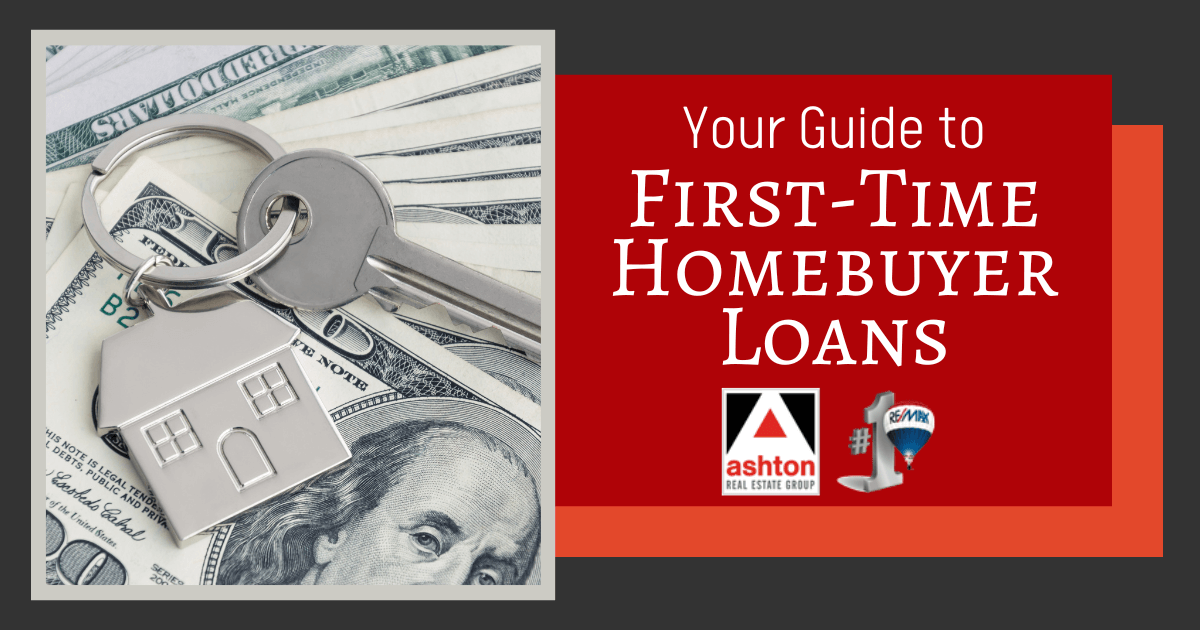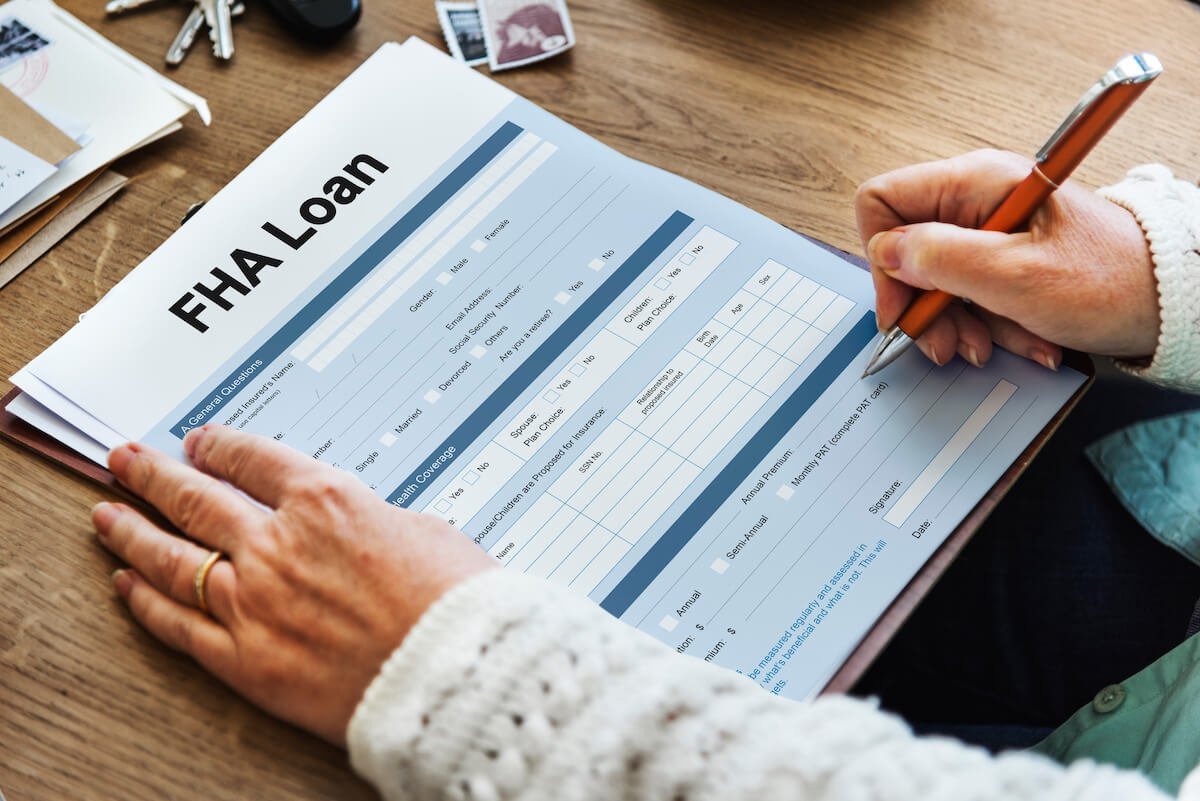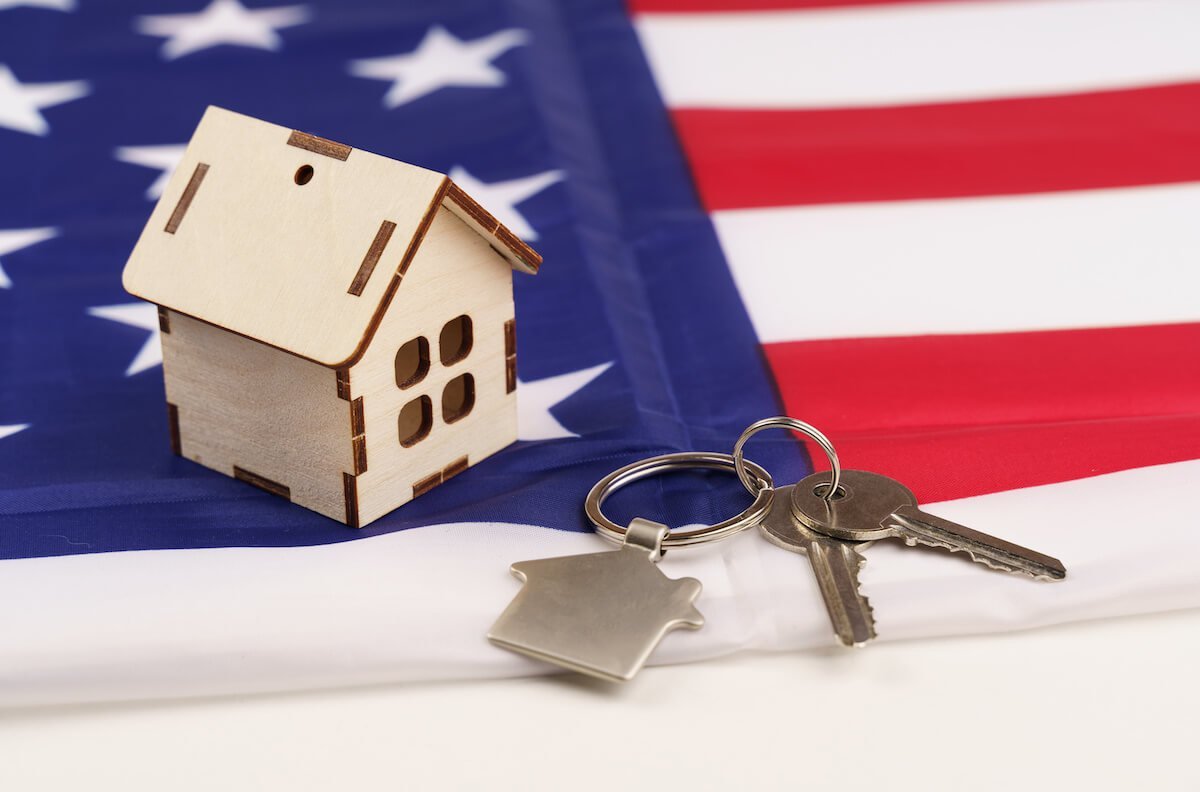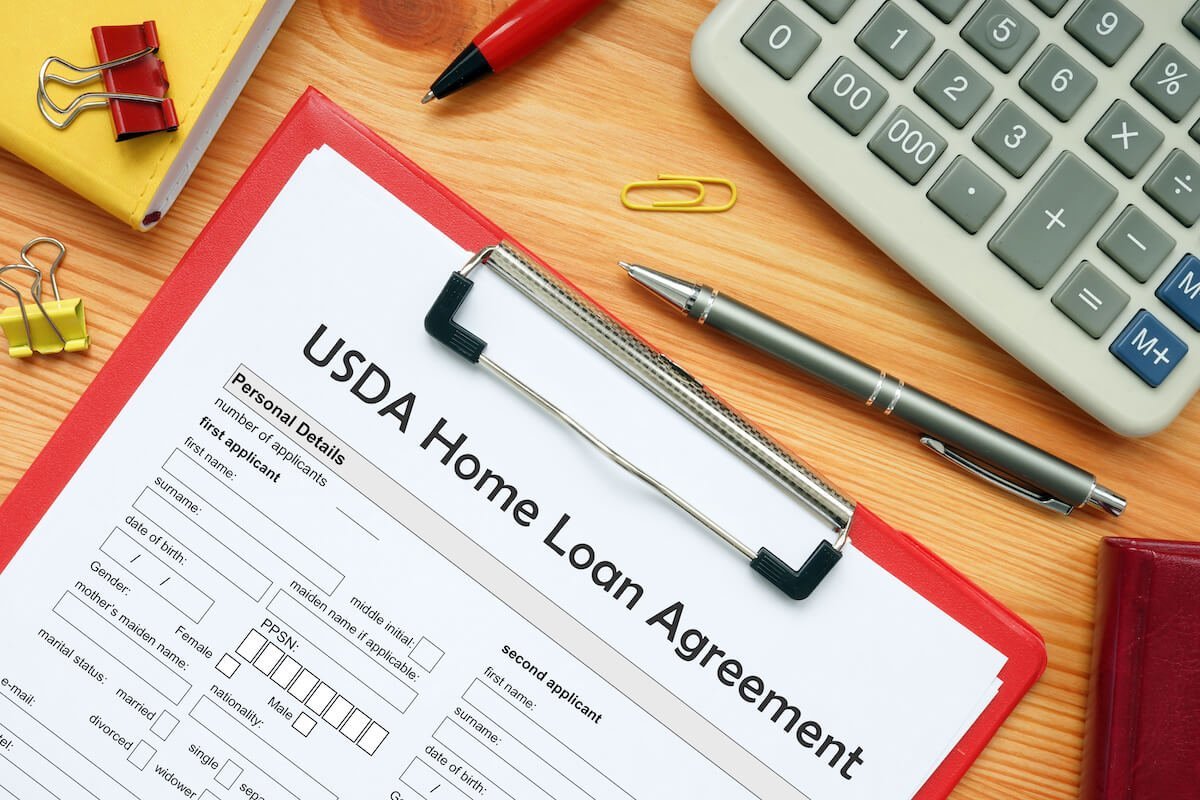4 Types of First-Time Homebuyer Loans: Which is Best For You?
Posted by Gary Ashton on Wednesday, May 8th, 2024 at 3:22pm.

Choosing the best home loan for first-time homebuyers is one of the most important financial decisions you can make in your life. Understanding the various options available and finding the right fit for your financial situation is crucial. From government-backed loans to conventional programs, each type offers different benefits and requirements to consider. Explore the most popular mortgages for first-time buyers to ensure you make the best choice for your future investment. Use these tips for first-time homebuyers to help you make informed decisions that align with your homeownership goals.
For informational purposes only. Always consult with a licensed mortgage or home loan professional before proceeding with any real estate transaction.
5 Things to Know About First-Time Homebuying Loans
- FHA, VA, USDA, Fannie Mae & Freddie Mac offer loans popular for first-time home buyers.
- FHA requires a minimum credit score of 580 and offers a low 3.5% down payment.
- VA loans benefit veterans with no down payment and lower interest rates.
- USDA loans target rural buyers with no down payment and flexible credit requirements.
- Fannie Mae & Freddie Mac provide conventional loans with low down payment options.
FHA Loans

FHA loans are a type of mortgage insured by the Federal Housing Administration, designed to help borrowers who may not qualify for conventional loans. These loans are popular among first-time homebuyers due to their lower minimum down payment requirements—typically as low as 3.5% of the purchase price—and more lenient credit score criteria. FHA loans also allow for higher debt-to-income ratios compared to conventional loans. However, borrowers typically must pay for mortgage insurance, which protects the lender in case of default, adding to the overall cost of the loan.
Eligibility Requirements
- Accessible Credit Scores: Minimum credit score of 580 for the lowest down payment; scores between 500 and 579 are eligible with a higher one.
- Low Down Payment: At least 3.5% of the purchase price if the credit score is 580 or higher; 10% if the credit score is between 500 and 579.
- Employment History: Borrowers should have a steady employment history or have worked for the same employer for the past two years.
- Debt-to-Income Ratio (DTI): Typically, the DTI ratio should not exceed 43% of your gross monthly income, though higher ratios may be considered with compensating factors.
- Primary Residence: The property must be used as the borrower's primary residence.
- Property Approval: The property must meet HUD’s minimum property standards and be appraised by an FHA-approved appraiser.
- Mortgage Insurance: Borrowers must pay an upfront mortgage insurance premium (UFMIP) and an annual premium, usually split into monthly payments.
Pros & Cons of FHA Loans
FHA loans offer a low down payment requirement of just 3.5%, making homeownership more accessible. They also have flexible credit score requirements, allowing applicants with scores as low as 580 to qualify. FHA loans also permit higher debt-to-income ratios compared to conventional loans. Since these loans are federally insured, FHA loan requirements in Tennessee are the same as any other states.
On the downside, FHA loans require mortgage insurance premiums upfront and annually, increasing overall costs. The property appraisal process for FHA loans can be stricter, potentially affecting the types of homes you can buy. Despite these drawbacks, FHA loans remain popular for first-time buyers due to their lenient requirements and lower down payment options.
VA Loans

VA loans are a type of mortgage backed by the U.S. Department of Veterans Affairs, available to current and former members of the U.S. military and, in some cases, their spouses. These loans are designed to help service members, veterans, and eligible surviving spouses become homeowners at favorable terms. VA loans stand out because they often require no down payment, do not necessitate private mortgage insurance (PMI), and typically offer competitive interest rates. The VA guarantees a portion of the loan, which protects lenders from default and allows them to provide these favorable conditions.
Eligibility Requirements
To qualify for VA loans, you must meet specific eligibility requirements as a prospective homebuyer. These requirements include being an active-duty service member, a veteran, a National Guard or Reserve member, or a surviving spouse of a service member who passed away in the line of duty.
Additionally, you need to obtain a Certificate of Eligibility (COE) to prove your eligibility for the loan. The COE shows your lender that you meet the military service requirements for a VA loan.
Pros & Cons
One significant benefit is the ability to buy a home with no down payment, making homeownership more accessible. VA loans also typically have lower interest rates than conventional loans, saving you money over the life of the loan. Additionally, these loans don't require private mortgage insurance (PMI), reducing monthly expenses. However, VA loans may have stricter property requirements and are only available to veterans, active-duty service members, and certain military spouses, limiting eligibility.
USDA Loans

USDA loans are mortgages supported by the United States Department of Agriculture, aimed at aiding rural homebuyers who meet specific income criteria. These loans are part of the USDA Rural Development Guaranteed Housing Loan Program and are designed to encourage homeownership in less densely populated areas across the country. One of the most appealing features of USDA loans is that they offer options for zero down payment, making homeownership accessible without large upfront costs.
Eligibility Requirements
Eligibility requirements for USDA loans typically include meeting specific income limits and purchasing a home in designated rural areas. To qualify for a USDA loan, your annual household income must fall within the set limits for the area you're looking to buy in. These income limits vary depending on the location and size of your household.
Additionally, the property you're interested in must be located in an eligible rural area as defined by the USDA. Meeting these criteria is essential to be considered for a USDA loan. Keep in mind that while USDA loans offer benefits like no down payment requirement, ensuring you meet these eligibility requirements is crucial to securing this type of financing for your first home purchase.
Pros & Cons
USDA loans offer significant advantages, such as requiring no down payment, low interest rates, and flexible credit requirements. Additionally, these loans are designed to assist homebuyers in rural and some suburban areas, promoting homeownership in those regions.
However, USDA loans have limitations, including property location restrictions and income eligibility criteria. It's essential to weigh these factors carefully to determine if a USDA loan is appropriate for your specific needs and situation.
Conventional Loans: Fannie Mae & Freddie Mac
Unlike FHA, VA, or USDA loans, conventional loans are not insured by the federal government. They are the most common type of financing and typically require a higher down payment and credit score for home buying. Fannie Mae and Freddie Mac play a pivotal role in the conventional loan market by purchasing these mortgages from lenders and packaging them into mortgage-backed securities. This process provides lenders with the liquidity to make more loans and keep interest rates competitive. Loans bought by Fannie Mae and Freddie Mac must meet specific underwriting guidelines and size limits, known as conforming loans. These guidelines ensure the quality and consistency of the mortgages they purchase, facilitating a stable and accessible lending market.
Eligibility Requirements
Fannie Mae and Freddie Mac don't issue any mortgages. Instead, they support lenders by providing borrowing criteria and setting the benchmarks for other regulations. Each entity works with banks and other lenders to provide the framework for first-time buying programs.
The Fannie Mae HomeReady mortgage program and the Freddie Mac Home Possible program are both designed to assist low- to moderate-income borrowers with buying a home. The HomeReady program offers low down payments starting at just 3% and is particularly flexible with credit qualifications and the sources of down payment, allowing contributions from other household members and non-occupant co-borrowers. It also includes the potential for reduced mortgage insurance costs and incentives for completing homeowner education courses. Similarly, the Freddie Mac Home Possible program provides options for very low down payments and flexible funding sources, including family contributions and employer assistance programs.
Pros & Cons
Both Fannie Mae and Freddie Mac offer conventional loans with low down payment requirements, making homeownership more accessible. The pros include competitive interest rates, broader loan approval criteria, and the potential for lower mortgage insurance costs.
However, these programs may have stricter credit score requirements than government-insured loans like FHA. Additionally, Fannie Mae and Freddie Mac loans may have slightly higher interest rates than government-backed options.
Frequently Asked Questions
Can I Combine Multiple First-Time Home Buyer Programs for Additional Benefits?
Yes, you can combine multiple first-time home buyer programs for extra benefits. You can only take out one homebuying loan, but you may leverage various programs like down payment assistance, grants, and tax credits and enhance your overall home-buying experience and financial assistance.
What Are the Common Mistakes to Avoid When Applying for First-Time Home Buyer Loans?
When applying for first-time home buyer loans, avoid common pitfalls like underestimating closing costs, neglecting to shop around for the best rates, skipping the pre-approval process, overlooking hidden fees, and maxing out your budget.
How Can I Improve My Chances of Qualifying for Down Payment Assistance Programs?
To improve your chances of qualifying for down payment assistance programs, focus on maintaining a good credit score, saving for a down payment, researching available programs, and meeting income eligibility requirements. Seek guidance from experts for tailored advice.
What Is the Tennessee Great Choice Home Loan?
Tennessee's Great Choice Home Loans feature a 30-year term with a fixed interest rate, offering predictable and affordable monthly payments. Applicants need a minimum credit score of 640, but those below can seek help from THDA-approved counselors to improve their scores.
For informational purposes only. Always consult with a licensed mortgage or home loan professional before proceeding with any real estate transaction.
Which Loan Will You Use to Buy Your First Home?
There's a great home loan for every first-time buyer! Whether you qualify for an FHA, VA, USDA, or conventional loan through Fannie Mae or Freddie Mac, options are available to make your dream of owning a home a reality. Take the time to compare the benefits and income requirements of each program to make an informed decision that best suits your needs.

Gary Ashton
The Ashton Real Estate Group of RE/MAX Advantage
The #1 RE/MAX team in the World!
